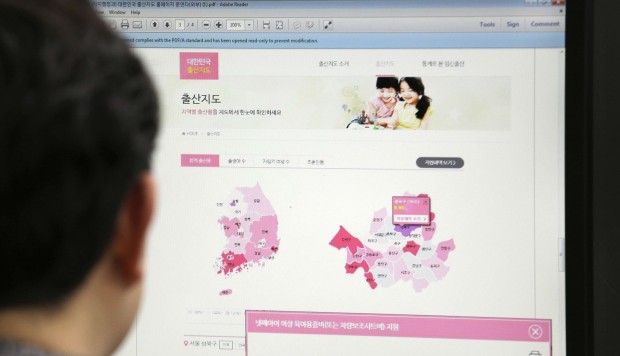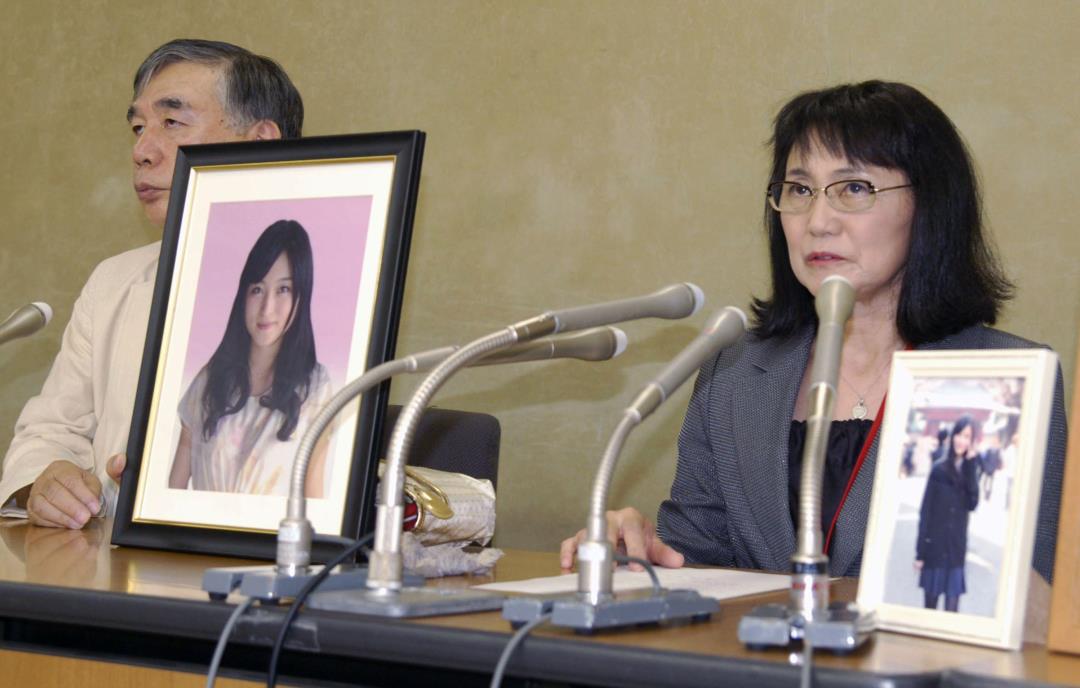U. S. scrambles to clear egg exports to bird flu-hit Korea
 South Korea banned imports of U. S. table eggs last year after the United States grappled with its own bout of bird flu.
South Korea banned imports of U. S. table eggs last year after the United States grappled with its own bout of bird flu.
If a new agreement is reached, U. S. shipments could bring some relief to South Koreans who have faced soaring egg prices and rationing since the outbreak there began last month.
The egg shipments also would help U. S. farmers cope with an oversupply that is depressing prices.
About 26 million birds, more than a quarter of South Korea’s poultry stock, have been culled to control the outbreak, and most of the birds have been egg-laying hens.
The opportunity to profit by filling the resulting shortfall with U. S. eggs has sent brokers and traders into overdrive.
Strains of bird flu, which can be spread by wild birds, have been detected across Asia and in Europe in recent weeks. Two people in China and one person in Hong Kong have died in the outbreaks.
The United States could reach agreement to resume trade with South Korea as early as next week, said Mark Perigen, national supervisor for shell eggs for a division of the U. S. Department of Agriculture.
«Everybody’s working hard to get it done,» Perigen said in an interview on Friday, adding that USDA employees had worked during holiday vacations on the issue.
«They’re desperate for eggs over there, and the government realizes that,» Perigen said.
South Korea’s embassy in Washington did not immediately respond to a phone message seeking comment.
Glenn Hickman, chief executive of Hickman’s Eggs in Arizona, has received calls from brokers searching for U. S. eggs to ship to South Korea.
«Everybody in Korea who needs eggs has Googled everybody in the world who might have eggs,» Hickman said.
«We’re getting calls from brokers who have no idea even the right questions to ask us,» he added. «It’s just somebody who knows how to freight stuff from the U. S. to Korea. »
With no agreement yet between the two countries, Hickman is asking employees to take contact information for the potential customers.
United States Egg Marketers, a cooperative of farmers that was established to export eggs, has received «numerous inquiries about this already, including from people who have never exported anything in their lives,» said Eka Inall, the group’s president.
«Our phone is blowing up, our email is blowing up,» she said.
Last year, U. S. food companies imported eggs from Europe after bird flu ravaged domestic chicken flocks and sent egg prices to record highs.
Since then, U. S. prices have tumbled as farmers have ramped up production.
The United States produced 7.44 billion table eggs in November, up 11.5 percent from a year earlier, and there were 312 million hens laying table eggs on Dec. 1, up 8 percent from a year before, according to USDA.
On Dec. 26, the average price for a dozen large white U. S. eggs was $1.17, down from a high of $2.88 in August 2015, according to market data firm Urner Barry.
«Current conditions in the U. S. are definitely a motivating factor to get this thing done,» Brian Moscogiuri, an Urner Barry analyst, said about U. S. efforts to ship eggs to South Korea.
In South Korea, the average retail price for 30 eggs has risen nearly 25 percent to 6,781 won ($5.68) since the outbreak began on Nov. 18. That is the highest price in more than three years, according to state-run Korea Agro-Fisheries & Food Trade Corp.
If South Korea begins importing U. S. eggs, its residents may need to adjust to a different appearance of the food staple.
Jim Sumner, president of the U. S. Poultry and Egg Export Council, said many Koreans prefer brown colored eggs, while the United States mostly produces white eggs.
«As they say, beggars can’t be choosers,» he said.
(Editing by Matthew Lewis)
© Source: http://feeds.reuters.com/~r/reuters/environment/~3/FBxGftCQ7RU/us-health-birdflu-southkorea-usa-idUSKBN14J1YM
All rights are reserved and belongs to a source media.


 In this Wednesday, Dec. 28 photo, a boy sits on a screen showing Korean traditional characters at the National Hangeul Museum in Seoul, South Korea. Impeached President Park Geun-hye’s surname is «Park,» right? Nope. In Korean it’s closer to «Bahk. » Park’s allegedly corrupt confidante, Choi Soon-sil, pronounces her name more like «Chwey» than the way it’s rendered in English. There is a gulf, often a wide one, between the way Koreans write their names in English and the way they actually sound. (AP Photo/Ahn Young-joon)
In this Wednesday, Dec. 28 photo, a boy sits on a screen showing Korean traditional characters at the National Hangeul Museum in Seoul, South Korea. Impeached President Park Geun-hye’s surname is «Park,» right? Nope. In Korean it’s closer to «Bahk. » Park’s allegedly corrupt confidante, Choi Soon-sil, pronounces her name more like «Chwey» than the way it’s rendered in English. There is a gulf, often a wide one, between the way Koreans write their names in English and the way they actually sound. (AP Photo/Ahn Young-joon)
 SEOUL: More than half a million South Koreans marked New Year’s Eve with a massive protest Saturday (Dec 31) calling for the immediate arrest and ouster of impeached President Park Geun-Hye.
SEOUL: More than half a million South Koreans marked New Year’s Eve with a massive protest Saturday (Dec 31) calling for the immediate arrest and ouster of impeached President Park Geun-Hye.
 SEOUL: South Korea’s former health minister was arrested under a court order Saturday (Dec 31) in a widening probe to determine whether impeached President Park Geun-Hye took bribes from businesses including Samsung.
SEOUL: South Korea’s former health minister was arrested under a court order Saturday (Dec 31) in a widening probe to determine whether impeached President Park Geun-Hye took bribes from businesses including Samsung.
 South Korea’s government closed its website that drew fury for showing the number of women in childbearing age by each city district and region. The Ministry of the Interior’s website featuring the pink birth map remained closed on Friday, a day after its launch, showing instead a notice that the site is undergoing corrections to reflect public opinion. The website had gone offline after just a few hours following criticism the government is trying to shame women for not having babies. Some said the government treated the birth rate issue as concerning only women, pointing out that no picture of men was used on the website. Using pink as the main colour, the site contained information on birth rates, benefits from local governments on child rearing, average marriage age and other data. On top of the website, it showed a picture of a woman kissing a little girl. In the birth map, the regions with a higher number of female residents aged 15-49 were coloured in dark pink while the regions with a lower number of such women were shown in light pink. The site also featured a ranking of regions by the number of women aged 15-49. Users could look up how many women who can have a baby resided in their neighbourhood for the past 10 years. Many users reacted with wonder and anger, saying they do not understand what the number of women who can get pregnant has to do with encouraging people to have more babies. “I felt so angered that it blatantly showed how the government saw women’s body as the country’s reproductive tools, not that belonging to the woman,” said Lee Min-kyung, a 24-year-old feminism writer. “I felt like nothing has changed and the hatred of women that I have experienced appeared again.” The government had touted it as a tool to increase the public’s understanding of the country’s low birth rate and compare the benefits from local governments for having a baby or raising a child. “It was established to encourage local governments to learn and compare other governments’ benefits and to promote free competition,” the ministry said in the press release distributed at the time of its launch. Calls seeking comments were not answered on Friday. South Korea is struggling to boost its rock bottom birth rate, one of the lowest among rich countries. This year, the country also saw growth of vocal feminist movements protesting misogynist views reflected in government policies and pop culture.
South Korea’s government closed its website that drew fury for showing the number of women in childbearing age by each city district and region. The Ministry of the Interior’s website featuring the pink birth map remained closed on Friday, a day after its launch, showing instead a notice that the site is undergoing corrections to reflect public opinion. The website had gone offline after just a few hours following criticism the government is trying to shame women for not having babies. Some said the government treated the birth rate issue as concerning only women, pointing out that no picture of men was used on the website. Using pink as the main colour, the site contained information on birth rates, benefits from local governments on child rearing, average marriage age and other data. On top of the website, it showed a picture of a woman kissing a little girl. In the birth map, the regions with a higher number of female residents aged 15-49 were coloured in dark pink while the regions with a lower number of such women were shown in light pink. The site also featured a ranking of regions by the number of women aged 15-49. Users could look up how many women who can have a baby resided in their neighbourhood for the past 10 years. Many users reacted with wonder and anger, saying they do not understand what the number of women who can get pregnant has to do with encouraging people to have more babies. “I felt so angered that it blatantly showed how the government saw women’s body as the country’s reproductive tools, not that belonging to the woman,” said Lee Min-kyung, a 24-year-old feminism writer. “I felt like nothing has changed and the hatred of women that I have experienced appeared again.” The government had touted it as a tool to increase the public’s understanding of the country’s low birth rate and compare the benefits from local governments for having a baby or raising a child. “It was established to encourage local governments to learn and compare other governments’ benefits and to promote free competition,” the ministry said in the press release distributed at the time of its launch. Calls seeking comments were not answered on Friday. South Korea is struggling to boost its rock bottom birth rate, one of the lowest among rich countries. This year, the country also saw growth of vocal feminist movements protesting misogynist views reflected in government policies and pop culture.
 TOKYO: An SUV drove off the fifth floor of a parking garage in Japan Saturday (Dec 31), killing three of its five passengers, local media reported.
TOKYO: An SUV drove off the fifth floor of a parking garage in Japan Saturday (Dec 31), killing three of its five passengers, local media reported.

 TAIPEI – Taiwan President Tsai Ing-wen said Saturday the public should rationally discuss the issue of whether to ease restrictions on food imports from five Japanese prefectures imposed in the wake of the 2011 Fukushima nuclear disaster.
TAIPEI – Taiwan President Tsai Ing-wen said Saturday the public should rationally discuss the issue of whether to ease restrictions on food imports from five Japanese prefectures imposed in the wake of the 2011 Fukushima nuclear disaster. 
 (Newser)
(Newser) 
 WASHINGTON —
WASHINGTON — 

